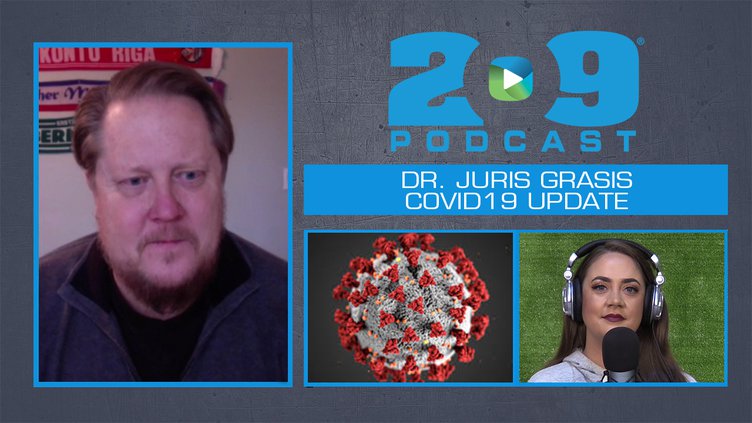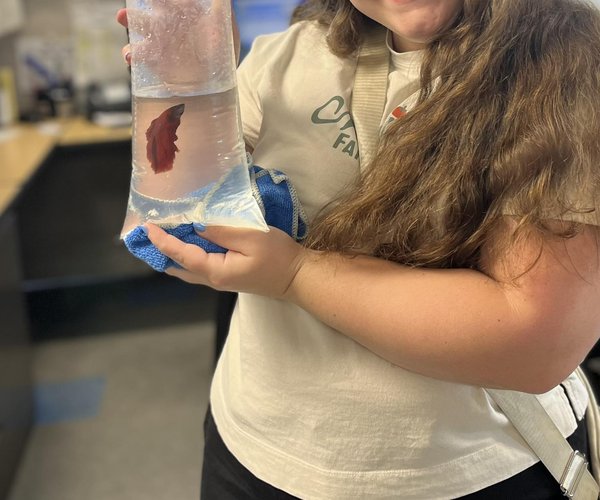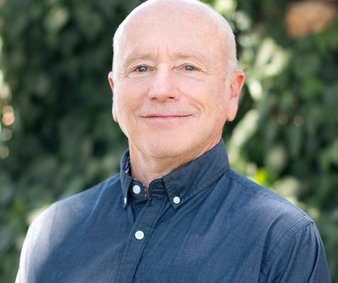Nine months after The 209 Podcast first spoke with University of California, Merced professor Dr. Juris Grasis about COVID-19, the virology expert sat down with us once again this week to talk about how the pandemic has progressed since March and how recent vaccine developments may be a light at the end of the tunnel.
While the Q&A below is just a snippet of the podcast episode, the conversation can be heard in its entirety by visiting TurlockJournal.com, Studio209’s YouTube channel and all podcast platforms.
Q: Have the last nine months played out like you expected them to back in March when this first began?
A: I had more optimism in March in hoping that we would all take this very seriously...such that we could have some amount of normalcy this year and keep our businesses afloat as a result. It hasn’t worked out as well as I would have hoped at that time. The virus has stayed around enough that now in the fall, we have a very extreme pandemic happening and it’s unfortunate, really. I do hope that for the most part, people have taken it seriously and taken the health professionals' advice and do what they need to do to help and prevent the spread of the virus.
Q: We’re seeing a huge spike in cases locally...what do you think went wrong?
A: It’s a complicated question. I think that we need more concentrated leadership overall, knowing that we’re not reliant just upon ourselves to make these decisions but also knowing that the government has our back at many different layers and shows the example of how best to act. I understand fully that people want to go see their family. We had a newborn baby this year and our family hasn’t seen her yet, only by Facetime or video, so I have every feeling that we want to interact with our families. But I think it’s best for our families and for our communities to continue to stay separated until we can get to the point of eliminating this virus or eliminating the spread of this virus through population immunity.
Q: As of today, 323,000 Americans have died of COVID-19. If I had presented that number to you back in March, what would your reaction have been? Is that something you would have expected given the deadliness of this disease?
A: The number makes my jaw drop and I actually think it’s an undercount. There have been a lot more deaths that have occurred where we haven’t known if the patient was COVID-positive or the pandemic situation affected their ability to get proper care, so that's a stunning number to me. I couldn't have imagined it in March. I really couldn't have imagined that many people...It saddens me because individually, that affects so many families and those are individual families that are affected where they could not see their relatives, their loved ones, and be there for them at that particular moment. That’s a tragedy in itself.
Q: In March you said that this virus was not like the flu due in part to the fact that there was no vaccine. Now we’re seeing these vaccines rolled out, so what can we expect and what does this vaccine mean for the pandemic?
A: So let’s think about this for a second: we only knew about this virus at the beginning of January, end of December this time last year, and remarkably we have options for vaccines now. We have two different approved vaccines and we have a third that’s probably going to be approved in mid-January, early February. That’s remarkable progress. Usually, it takes years to get a vaccine developed. These first two vaccines are incredible in that they took the genomic sequence of the virus and made a target of it that less than a year later was approved on an emergency basis, but approved enough that we can take this vaccine. Now we have two different options of this class of vaccine, a third one on the way and upwards of 60 different vaccines happening worldwide. So in the coming year, there’s going to be a lot of options available to people. These first two vaccines seem to work really well. Their efficacy is tremendous, the amount of side effects is very low and it seemingly is going to work for a lot of people, so I’d absolutely encourage people who have the opportunity to take it, take it.
Q: I’ve seen people say “What is the point of a vaccine if it’s only 90% effective?” Can you explain how a vaccine works and what it means when one is 90% effective?
A: Vaccines aren’t 100% effective. There's been no vaccine that’s truly 100% effective and that has more to do with our individual differences. Our body might not react to the presence of a vaccine in the same way as somebody else’s might. There’s going to be some variation amongst people and how well they react to a vaccine. These initial vaccines are pieces of RNA, or pieces of nucleic acid, that get injected into your muscle, and then they get into the cells within your muscle and then they express virus proteins and they are recognized by our immune system. Your body’s ability to recognize those proteins is really up the individual and how well your immune system works, and that’s why you’ll see some variation in how well a vaccine really works and peoples’ natural response to it.
Q: Despite how quickly this vaccine was created, do people need to fear it?
A: I think it’s extraordinary. Although it is a new class of vaccine, in theory it has worked fantastic and in practice it has worked fantastic. Between the two types of vaccines, we’ve tested over 100,000 people and now over one million people have had doses. We’re learning as we go along how safe and truly effective it really is. The nice thing, too, to think about is that if there's any indication that this is not safe, the FDA will come and say, “We’re stopping this immediately.” That’s that safety net that the FDA provides, so I think that people should feel confident that this vaccine is going to work for them and confident that there’s not going to be any real side effects.
Q: How many people need to be vaccinated before we can live life again?
A: This is a question about population immunity, or what people are calling “herd” immunity and it seems that a large population will need to be immune to this virus for us to feel confident to getting back to normal...The number is really an upwards of 70% of the population needs to either have already had the virus and survived so they have antibodies against the virus, or they need to have had the vaccine. Naturally, we’re only at about 9%, 10% of the population having been infected with the virus, we still have a long way to go and the only way we’re going to achieve that is with vaccines.









